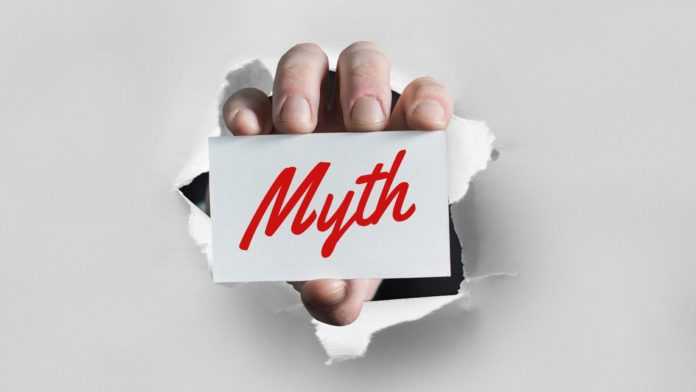According to data released by the RBI, the total outstanding credit cards in use at the end of July 2020 were approximately 57 million. Contrarily, the total number of debit cards in use stood at around 852 million. It shows that while more individuals are opting for the former nowadays, the number is still significantly lesser compared to debit cards. It can be partly due to several credit card myths associated with credit cards.
Such myths often discourage individuals from applying for a credit card. Additionally, some of these myths also misguide individuals regarding the usage of these payment cards, leading them to accrue high interest. Hence, one must gain a comprehensive understanding of these myths and the facts behind.
How to boost your small business by taking loans…
Here are Credit Card Myths and Facts
Myth 1: Credit cards pull down the credit score
One of the most common myths associated with credit cards is that opting for them will reduce the applicant’s credit score. On the contrary, credit cards provide individuals with the opportunity to build a reliable credit history.
First-time users can build a positive credit history by using these cards in a responsible manner like making timely payments, keeping credit utilisation in check, etc. It will enable them to avail unsecured advance easily in future.
However, individuals must pay off the total amount outstanding on their credit card by the due date every month instead of a minimum amount. Late, missed or minimum payment will not only attract high interest but will also impact one’s credit score negatively.
Myth 2: Paying the minimum amount due is enough
Another common myth associated with credit cards is that it is not essential to pay the total due amount accruing on them every month. One can just pay the minimum amount due mentioned on the card’s statement to avoid accruing interest.
However, this is not true. The minimum due payment option is extended by card issuers so that cardholders can maintain the account without paying the outstanding amount in full.
Also, individuals paying the minimum amount due are relieved from paying the late payment fees. However, they will still have to pay interest on the overall outstanding amount.
Cardholders should only opt to pay the minimum amount as the last resort and not make it a habit since it will lead them into a debt trap. Further, it also impacts their credit profile negatively.
Myth 3: Credit limit increase should be avoided
While researching credit cards, you may also come across this myth which advises users against increasing their credit limit. The credit limit is the maximum amount available on a credit card within which individuals can carry out transactions. The credit limit is decided by financial institutions based on several factors like income, current monthly obligations, repayment habit, credit score, and the likes.
A financial institution may decide to increase your current credit limit if your income increases or if you build a history of making timely repayments. Opting for a credit limit increase can be a smart decision for individuals with a hike in income as it reduces the credit utilisation ratio, thus leaving a positive impact on the credit score. Note that one should try to limit the credit utilisation ratio to 30% for such an impact.
Myth 4: Any old credit card account should be closed
Another common myth about credit cards is that one should always close off their old credit card accounts as such instruments can leave a negative impact on their credit score. On this note, one should keep in mind that the length of credit record is one of the main aspects taken into consideration by credit bureaus while calculating CIBIL score.
Thus, an old card which was well managed for a long time will reflect the owner’s financially responsible habit and can leave a positive impression on lenders.
Myth 5: Reward programs offered by credit card companies are not as beneficial as claimed
A common misconception associated with credit cards is that reward programs offered by the issuers are not thoroughly beneficial. However, this stands untrue in the broader context. Most credit card companies offer attractive reward programs to enhance the user experience, whereby cardholders can maximise benefits by aligning their transactions accordingly.
Under these rewards programs, users can avail reward points on every transaction. However, the reward points offered can vary for each lending institution as well as the types of credit card. For instance, for regular credit cards, one may earn 1-2 points for every transaction worth every Rs.100 made, whereas premium credit cards may offer 3-5 points for every transaction of the same value.
Apart from such transactions, some financial institutions also offer reward points as welcome bonuses and on reaching milestones based on the types of credit card selected. These reward points can be used to avail cashbacks, discounts and vouchers from partner stores and merchants, which enable users to save substantially on future purchases.
Types of credit card
Individuals must also know how to choose the right credit card for themselves according to their spending requirements to utilize the benefits offered on these cards fully. Different types of credit card available in the market are as follows –
- Fuel credit cards.
- Lifestyles and shopping credit cards.
- Corporate and business credit cards.
- Student credit cards.
- Travel credit card.
One can also consider opting for credit cards like SuperCard that combine the features of the above cards. The card also offers additional features like cash withdrawal from ATM for an interest-free period of up to 50 days, conversion of outstanding amount to affordable EMIs, emergency loan for an interest-free period of up to 90 days, protection against online fraudulent via in-hand security and zero-fraud liability cover, etc.
The issuing NBFC also extends additional features like pre-approved offers to individuals, which reduces the hassles and fast-tracks loan processing. Apart from credit cards, such offers can be availed on an array of financial products such as business loans, personal loans, etc. Individuals can easily check their pre-approved offer before applying by providing only nominal details like name and contact information.
One should also learn to read the credit card statement correctly as it carries all essential card-related details such as total payment due, minimum amount due, details of all payments made in a billing cycle, total and available credit limit, reward points earned and redeemed, and the likes. Gaining a comprehensive idea regarding these will enable them to use their credit card wisely.







